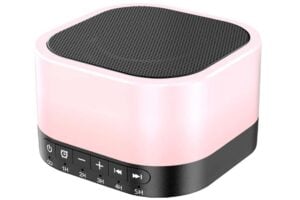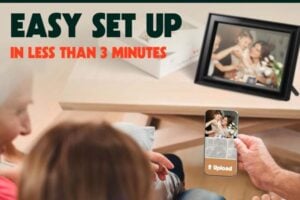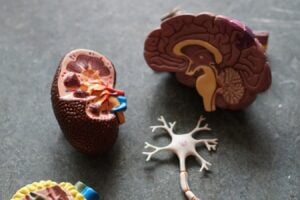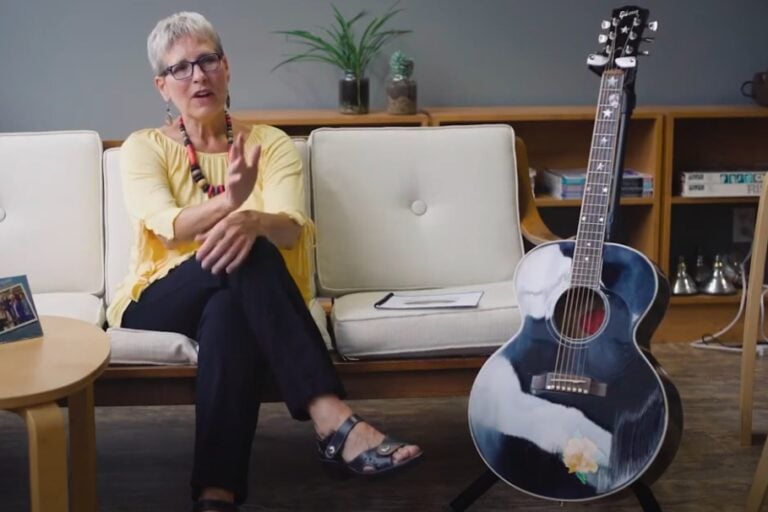
Can Hearing Aids Diminish Dementia?

Related:


Best Digital Photo Frames for Dementia

What Causes Sundowning? Frustration or Chemistry?

New Year’s & Reminiscence Therapy

Can the Smell of Rosemary Influence Memory?

By:
Peter Berger
This site was inspired by my Mom’s autoimmune dementia.
It is a place where we separate out the wheat from the chafe, the important articles & videos from each week’s river of news. Google gets a new post on Alzheimer’s or dementia every 7 minutes. That can overwhelm anyone looking for help. This site filters out, focuses on and offers only the best information. it has helped hundreds of thousands of people since it debuted in 2007. Thanks to our many subscribers for your supportive feedback.
The site is dedicated to all those preserving the dignity of the community of people living with dementia.
Peter Berger, Editor
Share this page To
Dementia Books & Videos on Amazon:
More From Alzheimer's Weekly

5 Ways Music Helps Dementia
SEE five powerful reasons to use music in dementia care. Mary Sue Wilkinson is Founder of “Singing Heart to Heart” and author of “Songs You Know By Heart: A Simple Guide for Using Music in Dementia Care”, with Teepa Snow. Learn more.

Alzheimer’s & Viruses: The Latest Research
PROGRESS VIDEO + ARTICLE: American researchers found ‘unusually high‘ levels of two human herpes virus strains in brains of people with Alzheimer’s. This opens a

Sandwiched Between Kids & Alzheimer’s – 5 Tips
“SANDWICH GENERATION CAREGIVERS” live sandwiched between their kids and their Alzheimer’s parent. All the new activity can add to an already hectic schedule. 5 tips can help keep the balance.

Virtual Forest Project Calms & Connects in Dementia
See how The Virtual Forest Project lifts people with dementia.
Visit Alzheimer's Weekly On
Welcome
Alzheimer’s & Dementia Weekly was inspired by my mother’s journey with autoimmune dementia and my dad’s with Parkinson’s dementia.
Walking beside them opened my eyes to the confusion, the courage, and the deep humanity found in families and professionals caring for someone they love.
Since its debut in 2007, this site has had one clear mission:
to separate the wheat from the chaff — to highlight only the most essential articles, studies, tools, and videos from the overwhelming river of dementia-related information.
(At last count, Google receives a new post on Alzheimer’s or dementia every seven minutes.) For anyone seeking clarity or support, that constant flow can be exhausting and discouraging.
Alzheimer’s Weekly filters, translates, and explains what matters most, helping hundreds of thousands of families, clinicians, and care teams around the world make sense of the latest research and best practices.
This site is dedicated to everyone who works—often quietly and tirelessly—to preserve dignity in the community of people living with dementia.
About the Editor
With experience in dementia caregiving, public education, and Alzheimer’s-focused writing—and a professional research background shaped in what many consider one of the world’s top laboratories—I work to make complex findings clear, practical, and genuinely helpful for both families and professionals providing care.
My goal is simple:
Translate the best science into guidance that lightens the load, strengthens understanding, and helps every person with dementia live with dignity.
Peter Berger
Editor, Alzheimer’s Weekly

It is very well-established that there is a strong correlation between hearing loss and dementia in general / Alzheimer's in particular. The question remains as to what the relationship might be. Studies to date indicate that it may be a very complicated relationship, and one that is likely different from person to person. Hearing loss may develop first and trigger dementia and/or make it worse … dementia may develop first and trigger hearing loss and/or make it worse … some third factor may trigger both hearing loss and dementia at the same time … or some combination of the three. And it turns out there's quite a bit of supportive evidence for all three. This was discussed in some detail on the Alzheimer's Association discussion forums a while back — see SunnyCA's post:
http://www.alzconnected.org/discussion.aspx?g=posts&t=2147497080
For more on Dr Lin's studies in particular, see, e.g., his 2013 paper:
http://www.ncbi.nlm.nih.gov/pmc/articles/PMC3869227/
Lin, F. R., Yaffe, K., Xia, J., et al. (2013). Hearing loss and cognitive decline in older adults. JAMA internal medicine, 173(4), 293-299.
Hi,
Thanks for the comment. I was thinking about that before creating this post, as the doctor in the video clearly says that a hearing aid may help to lower risk, which is a form of prevention.
It seems like his thinking is that it is well established that certain lifestyle factors are associated with lower risk of dementia. These include being social and doing brain exercises in an active way, but not in a stressful way. Stress has been clearly associated with higher risk. I know that when I talk to my Dad and he cannot hear me clearly because he is not wearing his hearing aid, we both get pretty stressed.
So in the long run, if a person needs a hearing aid in their 50s or 60s, it can save them from decades of stress, social avoidance and decreased brain exercise. Though no one has the magic prevention potion, research clearly shows that all this does add up to a healthy helping of lifestyles associated with lowering the risk of dementia.
It sounds like it makes sense.
Help persons with dementia already? Absolutely. Prevent dementia? I doubt it. Too many people with perfect hearing have dementia.Let's not forgo logic here people. Connected is one thing. Causing is a whole other thing…